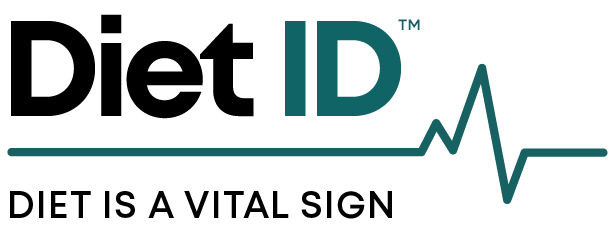Study Validates the Diet ID Methodology to Assess Diet Quality in Association with Cardiometabolic Biomarkers
This is the latest in a series of studies that support scientific validation of a novel digital dietary assessment method.
DETROIT, MI, UNITED STATES, February 14, 2023
A recent study published in the peer-reviewed American Journal of Health Promotion described the significant associations between diet quality measured by the patented Diet ID™ pattern recognition tool and blood biomarkers of cardiometabolic health, including hemoglobin A1C (HgbA1c), high density lipoprotein cholesterol (HDL-C), triglycerides, high-sensitivity c-reactive protein (hs-CRP), homeostatic model assessment for insulin resistance (HOMA-IR), and fasting insulin. The study concluded that Diet ID is a valid, reliable method for predicting variation in key blood biomarkers related to diet quality.
Poor diet quality is the single leading predictor of premature mortality and chronic morbidity in the United States. This study demonstrates that an image-based, rapid, scalable dietary assessment method reliably predicts variation in key biomarkers of cardiometabolic health. While traditional methods involve long-form surveys, interviews, or tedious logging, this novel method, based on pattern recognition plus a few basic inputs, can both estimate diet quality and predict cardiometabolic blood biomarkers.
There is a critical need for a shift in healthcare, from waiting for physical damage to show up in blood tests indicating disease, to predicting disease risk early on with a scalable, low-cost, non-invasive, rapid technique. Diet ID, whose base assessment can be completed in as little as a minute, is a solution with potential to save billions of healthcare dollars while identifying high-risk individuals so that early intervention can prevent illness, disability, and early death.
The study, “Rapid, Digital Dietary Assessment in Association with Cardiometabolic Biomarkers,” was a retrospective analysis of over 500 adults’ blood biomarkers performed by Boston Heart Diagnostics (BHD) within a 2-year period. Diet ID assessment of diet composition and diet quality (based on the Healthy Eating Index 2015) correlated significantly with HDL-C, triglycerides, hs-CRP, HgbA1c, fasting insulin and HOMA-IR. The study also found significant associations between these biomarkers and intake estimates of individual nutrients, such as saturated fat, sodium, omega-3 fatty acids, added sugar, and dietary fiber. The analysis accounted for effects of supplements and medications that would impact blood values.
This study presents a valuable opportunity to discover associations with biomarkers indicative of cardiometabolic risk and diet quality scores. The results are compelling and meaningful not only to validate the measurement tool, but to add to the body of research linking cardiometabolic disease risk to diet quality.
"Our study findings help confirm the clinical validity of the Diet ID method for rapid dietary assessment," said study co-investigator Michael Dansinger, MD. "I'm pleased to see this important dietary intake measure being used as a vital sign in a growing number of patients in actual clinical practice."
This analysis is the latest published study to validate the Diet ID dietary assessment method for measuring diet quality, which is a powerful, reliable indicator of chronic disease risk. This study demonstrates that a rapid, digital dietary assessment tool based on pattern recognition correlates significantly with biomarkers of cardiovascular risk, insulin and glucose metabolism, and inflammation, as well as adiponectin. These findings affirmed the primary study hypothesis that diet quality and composition as assessed using Diet ID would correlate significantly with key biomarkers of cardiometabolic health.
Press release link: https://www.einpresswire.com/article/616805795/study-validates-the-diet-id-methodology-to-assess-diet-quality-in-association-with-cardiometabolic-biomarkers

